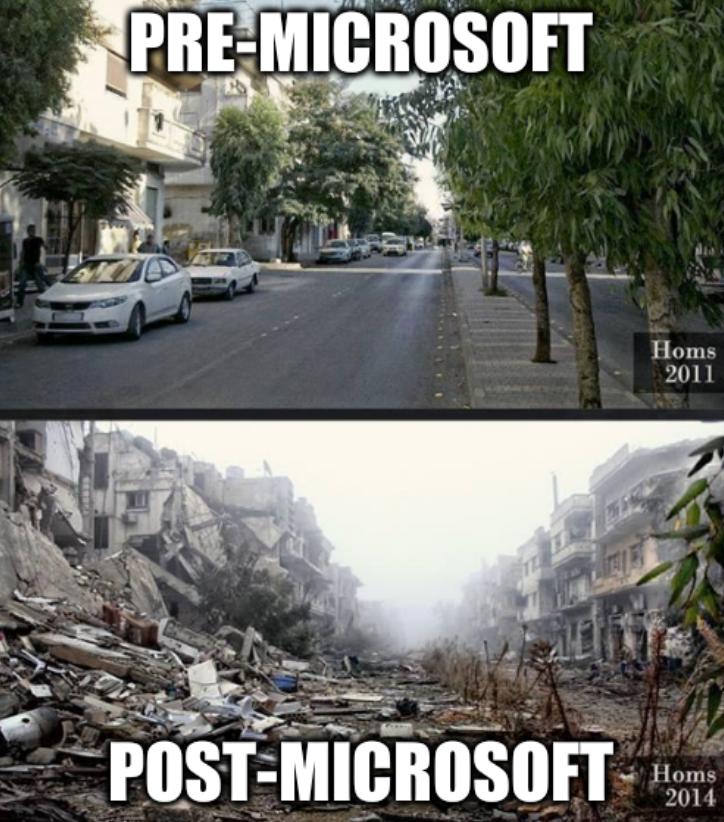

IN THE previous part of this series (the series will be indexed and strung together at the end; here's the previous part) we talked about poor journalism or intentionally bad coverage. "The linked article also shows some clever ass-covering," our source told us after we had found an article of relevance. It's rather clear that the reporter or 'journalist' didn't pursue facts, instead printing the face-saving lies. That's more harmful than helpful because it obscures and misplaces blame. From what we understand, Microsoft was a bit culprit, but the press keeps sidestepping in downplaying the role of Windows and other proprietary software with back doors (the NSA has software tools tailored for remote access and those tools sometimes leak out).
“They connived to eliminate the standards based, in-house e-mail infrastructure which ran on commodity free and open source software. The initial decision was to replace it with Microsoft Outlook / Microsoft Exchange and pretend that would be adequate.”
--AnonymousWe'd like to put the gory (sometimes literally) details aside at a moment. We'd like to revisit the subject of retaliation -- an aspect explored earlier in this series. There are parallels to be drawn to the case of Eric Lundgren, which we introduced in [1, 2, 3] before revealing the extent/lengths to which Microsoft went to destroy his life [1, 2, 3, 4, 5, 6, 7]. We spoke to a friend of his a few weeks ago. He said that Eric is still trying to get his life back, starting with new projects after the legal aftermath which left him blackmailed into pleading guilty (for reduced sentence). Issues to cover next in his case, which we hoped to do using court documents included for evidentiary support: Silencing Media, Court Mischief, Legal and Financial Ramifications...
The whole thing was rigged from beginning to end. It's almost as though the process was 'fixed'...
Maybe one day we'll get around to doing that story again; shall he be willing (the emotional burden on him was immense, not to mention the massive debt). The rule of thumb at Microsoft is, either you're with the cult or against it. What's the cult? Microsoft. If you're not with Microsoft, you're soon marked as an enemy to be eliminated (e.g. sacked or marginalised).
On "Microsoft vs healthcare," one person once told us, there's much to be said which extends beyond hospitals. I too have seen it in my career. The only solution to that is to never allow Microsoft 'cultists' into one's company/institution in the first place. They tend to bring along with them yet more cultists; it's like a gradual takeover and sooner or later everything that's not Microsoft's will be removed. Both people and technology.
"At one hospital," we were told, "the parent organisation was partially infiltrated by microsofters at a level capable of influencing technology policy. They connived to eliminate the standards based, in-house e-mail infrastructure which ran on commodity free and open source software. The initial decision was to replace it with Microsoft Outlook / Microsoft Exchange and pretend that would be adequate. However, when people found out about that, there was an uproar. It was too late to save the infrastructure though but not too late to pivot to Google and GMail. It was not good compared to the original infrastructure but magnitudes less bad than what could have happened. However, within hours of that pivot, large numbers of Microsoft advisers and sales people swarmed the hospital and, without planning one iota, they went on a massive rip-and-replace spree, eliminating all non-Microsoft systems they could find in the infrastructure. It does not work very well."
“Outlook, of course, is unusable and causes problems all the time through crap size limits, spam filtering legitimate mail, refusal to work with decent clients, etc.”
--Anonymous"Sounds typical," told us one person privy to these details, "but I'm not that happy to have company."
"Outlook, of course, is unusable and causes problems all the time through crap size limits, spam filtering legitimate mail, refusal to work with decent clients, etc. Lots of drama and ruin came from all of this, and we are just a tiny center with one or two doctors."
If you've experienced similar things, please do contact us for future stories. ⬆